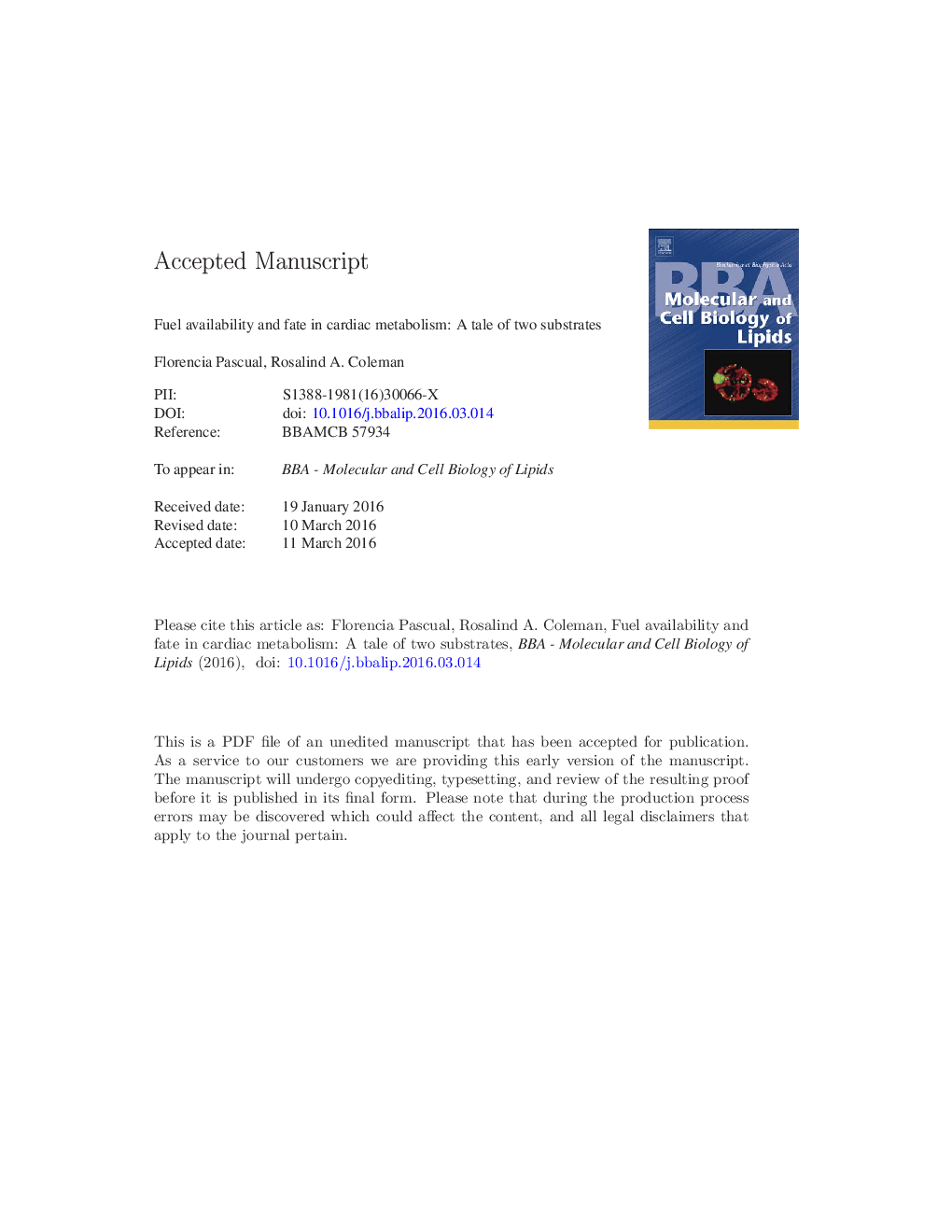| Article ID | Journal | Published Year | Pages | File Type |
|---|---|---|---|---|
| 1949025 | Biochimica et Biophysica Acta (BBA) - Molecular and Cell Biology of Lipids | 2016 | 33 Pages |
Abstract
The heart's extraordinary metabolic flexibility allows it to adapt to normal changes in physiology in order to preserve its function. Alterations in the metabolic profile of the heart have also been attributed to pathological conditions such as ischemia and hypertrophy; however, research during the past decade has established that cardiac metabolic adaptations can precede the onset of pathologies. It is therefore critical to understand how changes in cardiac substrate availability and use trigger events that ultimately result in heart dysfunction. This review examines the mechanisms by which the heart obtains fuels from the circulation or from mobilization of intracellular stores. We next describe experimental models that exhibit either an increase in glucose use or a decrease in FA oxidation, and how these aberrant conditions affect cardiac metabolism and function. Finally, we highlight the importance of alternative, relatively under-investigated strategies for the treatment of heart failure. This article is part of a Special Issue entitled: Heart Lipid Metabolism edited by G.D. Lopaschuk.
Keywords
Related Topics
Life Sciences
Biochemistry, Genetics and Molecular Biology
Biochemistry
Authors
Florencia Pascual, Rosalind A. Coleman,
